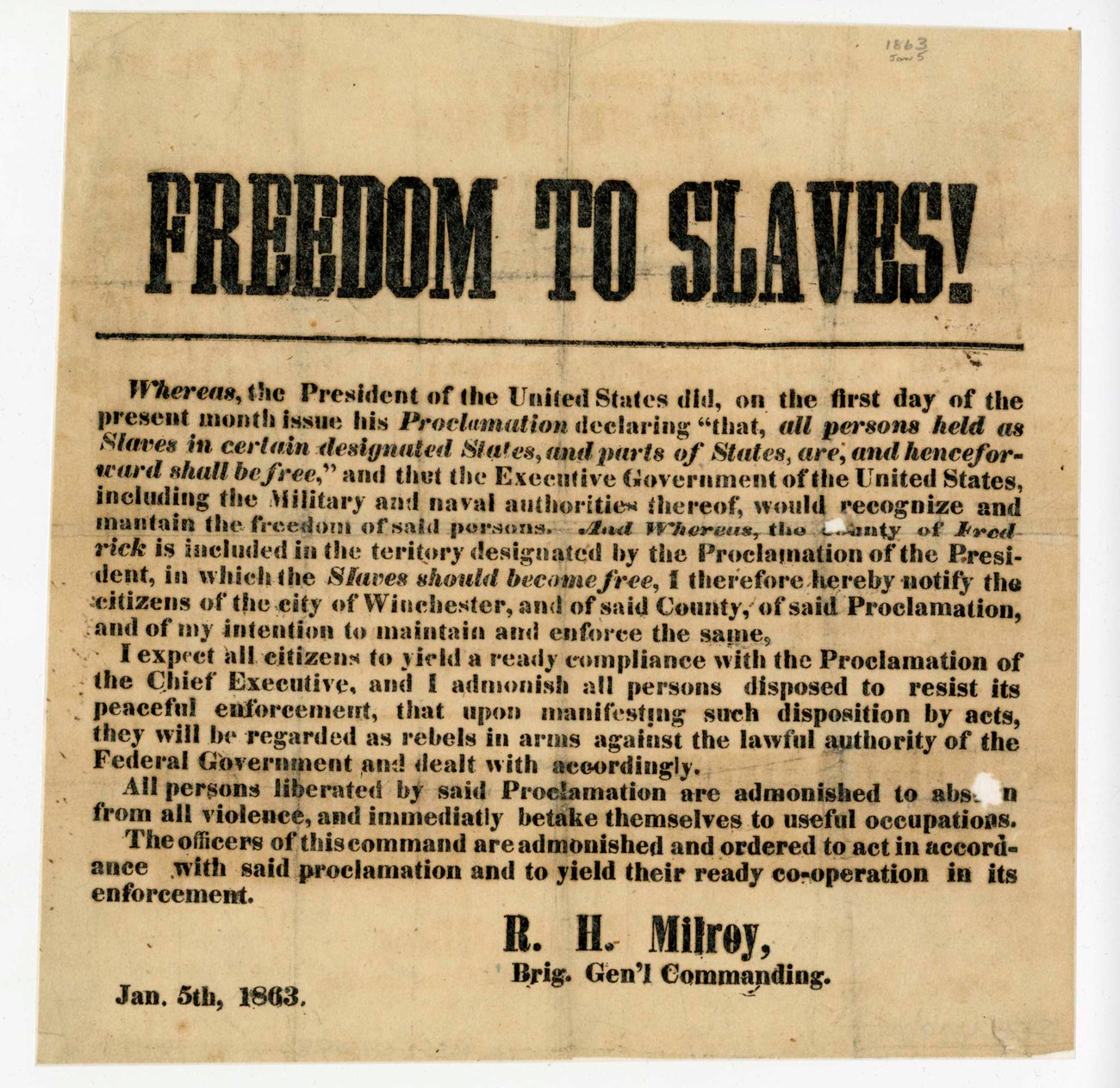Last updated: August 16, 2022
Article
Occupied Winchester, 1862-1863

Library of Virginia
“My will is absolute law. None dare contradict or dispute my slightest word or wish.”
Brig. Gen. Robert Milroy, USA
United States troops commanded by Brig. Gen. Robert Milroy came to the Lower Shenandoah Valley in December 1862. Establishing himself in Winchester, Milroy’s tasks were to protect the important Baltimore and Ohio Railroad, enforce President Abraham Lincoln’s Emancipation Proclamation, protect local Unionist citizens, and control the region. Milroy commanded around 7,000 men who he put to work opposing Confederate guerillas and constructing earthwork fortifications. A devout Presbyterian, staunch Republican, and an ardent abolitionist, Milroy quickly became a polarizing figure.
Harsh Feelings
To some, Milroy was the devil himself. He angered many white residents by treating African Americans in the region as equals and supporting enslaved people who asked for assistance seeking freedom northward or wished to stay in the area as free people. He also required civilians to take an oath of loyalty to the United States in order to receive privileges and treated those who did not do so strictly. His harshest treatment, including exile from Winchester, was focused on civilians who offered goods or information to Confederates but sometimes included those who simply voiced support or wore ribbons mourning the death of Confederate general Thomas Jonathan Jackson in May 1863. “My will is absolute law,” wrote Milroy to his wife. “None dare contradict or dispute my slightest word or wish.” Viewing Winchester’s pro-Confederate residents as traitors to the nation, Milroy disliked them as much as they disliked him.
Emancipation & Loyalty
However, other local citizens appreciated Milroy’s presence. Following the preliminary announcement in September 1862, Lincoln’s Emancipation Proclamation went into effect on January 1, 1863. This declared “that all persons held as slaves” within the areas in open rebellion “are, and henceforward shall be free.” Shortly after his arrival, Milroy issued his own announcement explaining that the Emancipation Proclamation applied to this region and that he intended to enforce it. Soldiers moved throughout the town and Frederick County, spreading the news of emancipation and even helping many enslaved leave. Though some enslaved people had sought freedom earlier in the war, especially when US troops had been in the region in 1862, this new legal proclamation led many more to leave their enslavers or assert their rights as free people who were entitled to wages. Additionally, local citizens who remained loyal to the United States, such as diarist Julia Chase, supported Milroy’s “occupation” as they had been harassed by secessionist neighbors or Confederate troops earlier in the war.
Milroy's emancipation notice read:
Freedom to Slaves!
Whereas, the President of the United States did, on the first day of the present month issue his Proclamation declaring “that, all persons held as Slaves in certain designated States, and parts of States, are, and henceforward shall be free,” and that the Executive Government of the United States, including the Military and naval authorities thereof, would recognize and maintain the freedom of said persons. And Whereas, the county of Frederick is included in the territory designated by the Proclamation of the President, in which Slaves should become free, I therefore hereby notify the citizens of the city of Winchester, and of said County, of said Proclamation, and of my intention to maintenance and enforce the same,
I expect all citizens to yield a ready compliance with the Proclamation of the Chief Executive, and I admonish all persons disposed to resist its peaceful enforcement, that upon manifesting such disposition by acts, they will be regarded ass rebels in arms against the lawful authority of the Federal Government and dealt with accordingly.
All persons liberated by said Proclamation are admonished to abstain from all violence, and immediatly betake themselves to useful occupations.
The offices of this command are admonished and ordered to act in accordance with said proclamation and to yield their ready co-operation in its enforcement.
R.H. Milroy
Brig. Gen’l Commanding.
Jan. 5th 1863
Milroy’s Departure
In June 1863, Milroy was forced out of the Shenandoah Valley. As Confederate Lt. Gen. Richard Ewell’s corps marched north in the campaign that climaxed at Gettysburg, it defeated US troops at Winchester. Despite his infamy among the local population and Confederate newspapers, and the desire of many to take retribution, Milroy escaped capture. After lengthy legal proceedings, he was absolved of blame for the defeat at Winchester.
United States troops returned to Winchester soon after the Confederates retreated south following defeat at Gettysburg, though the city changed hands again later. When US won a major battle at Winchester in September 1864, the town never again fell under Confederate control.
